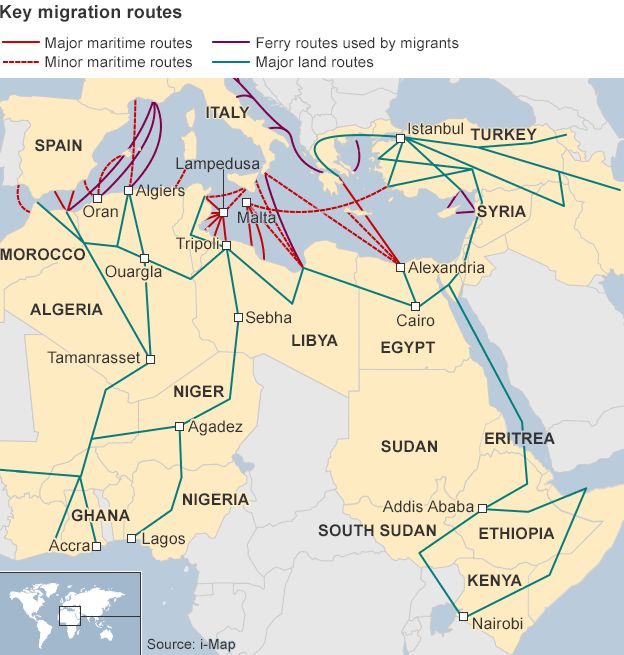Gestures of Compassionate Humanity
"Of course, half a million arrivals and 3,000 deaths, by themselves are merely statistics. But when we think of what these statistics mean -- lives tragically lost and families separated forever from loved ones and unable to come to closure; education, careers and dreams abandoned...."
"We mourn for the victims and for our entire shared humanity."
William Lacy Swing, director-general, International Organization for Migration
"Europe is the baker in Kos who gives away his bread to hungry and weary souls. Europe is the students in Munich and in Passau who bring clothes for the new arrivals at the train station. Europe is the policeman in Austria who welcomes exhausted refugees upon crossing the border."
"This is the Europe I want to live in."
EU President Jean-Claude Juncker

The International Organization for Migration has stated that 522,134 refugees streaming toward Europe for haven through maritime arrivals have doubled the numbers seen the previous year. They also report that close to three thousand migrants have died or simply vanished in 2015, most suspected of having drowned in their perilous journey to Europe from their source countries in the Middle East, Asia and Africa.
The steady migration toward Europe, despite the dangers they face and the uncertain reception, and their knowledge of the dreadful fate that some among them have faced in the attempt, has increased in tempo, leaving European nations scrambling to try to accommodate their most immediate needs in recognition of the human tide that must be fed, given medical assistance, housed, transported.
Certainly the countries of Europe whose finances are strained are incapable of fulfilling the most basic of humanitarian functions migrants hope for on their arrival. Nor, for that matter, is their arrival greeted kindly, for their accommodation imposes a dreadful burden on the host country which has no wish to be a host country, with rare exceptions.
Europe is at odds with itself. A very finite number of relatively wealthy countries have offered themselves as exemplars of what a national consensus can achieve in welcoming the desperate and the weary; in some instances what an administration will commit to, despite the reluctance of the nation's people themselves. For the most part, however, with their resources strained by the sheer numbers of haven-seekers, there is little enthusiasm in Europe generally to greet the influx.
Enter ordinary citizens. Two young Swedish women have taken to approaching refugees at the main train station at Copenhagen to offer to sail them from Denmark to Sweden. Denmark is not prepared to open its arms to any more refugees or immigrants than it has already absorbed and for its pains, seen its demographics and its indigenous culture transformed, while Sweden's arms remain open.
In Croatia, one of the eastern European countries whose government has made it abundantly clear that they are not prepared to absorb any more refugees, people who fled their homes during the Balkan wars in the 1990s recall their anguish and now offer food to migrants. A Romanian student whose family had been forced by Soviet troops to abandon their home during the Second World War conceived of the idea to welcome Syrian migrants directly to his family home.
In Calais, one woman has established a service to local migrants living in nearby camps who remain in critical contact with their families and the world outside their refugee community through the use of their cellphones. It has been years since she first offered to charge their cellphones through an electrical connection in her garage; one small service that means volumes to those in need.
At the train station in Milan, volunteers have responded for the last two years to aiding migrants; bringing donations of food and clothing. One eleven year old girl brings homeless children paper and pens so that the children have the opportunity to write and to draw and to express themselves through the medium of another type of communication as an outlet for their depressed spirits.
Needless to say, the anguish of homelessness and statelessness is the result of massively dysfunctional states, all of them reflecting one thing in common; they are Islamic states. Islam is steadily devouring itself in a fierce battle of extremist fundamentalists whose fascist ideology of hard-line Islamist purity has been the cause of jihadist and sectarian violence, and particularly in Syria where 7 million Syrians have been internally displaced and another 4 million are now refugees.
If Islam could somehow pacify itself out of its violent internal rage, the Muslim world would be huge beneficiaries through fewer violent deaths, the international community would be less concerned over jihadist terrorism and floods of Muslim refugees, and nations that oppress their people and impose harsh conditions upon them, threatening their very existence, might reform themselves if their populations rose en masse rather than exit en masse.
All in the realm of wishful thinking.
Labels: Africa, Asia, Conflict, Crisis Management, Europe, Islamism, Middle East, Refugees, Syria

0 Comments:
Post a Comment
<< Home